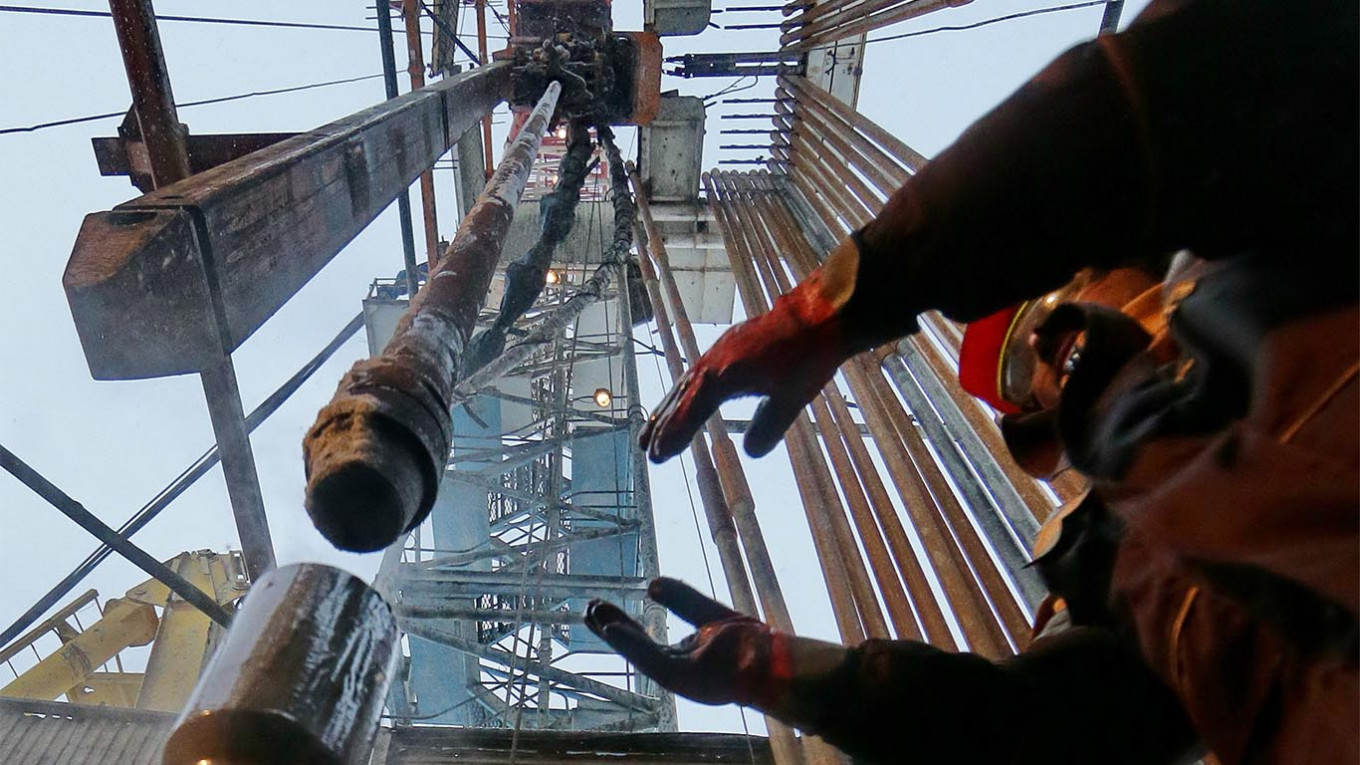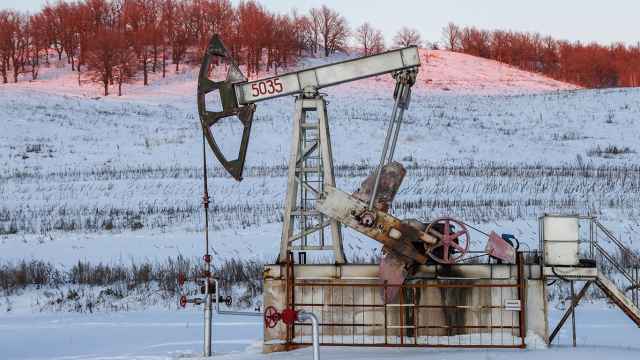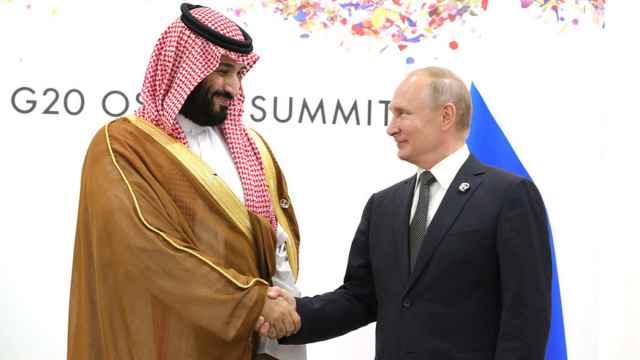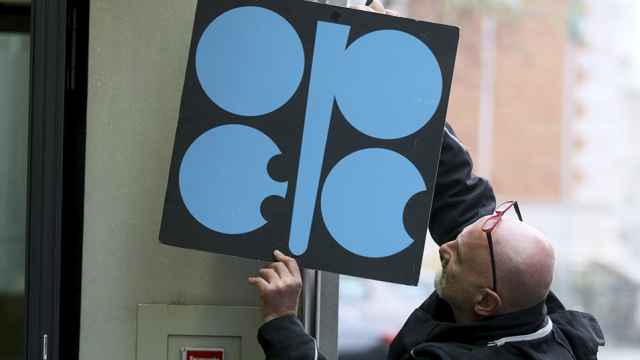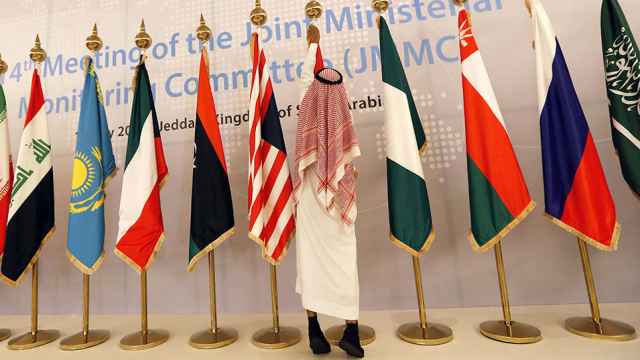The fresh OPEC+ deal struck between Russia and Saudi Arabia over the weekend will provide little support to the Russian economy, analysts believe.
Instead, the deal — labeled “historic” by Organization of Petroleum Exporting Countries (OPEC) secretary general Mohammad Barkindo — will help avoid a further crash in oil prices which would have heaped even more pressure onto the Russian ruble and complicated the Kremlin’s economic response to the coronavirus pandemic.
Markets were largely unmoved by news of the deal to cut production by 9.7 million barrels a day — around 10% of global output.
Russia will pare its production back to 8.5 million barrels of oil a day, compared to 11.3 million recorded in March as Moscow ramped up output during the oil price war with Saudi Arabia which was kicked off after the previous OPEC+ agreement broke down.
Should Russia comply with the new deal in full, its daily output will be the lowest since 2004.
Kremlin spokesman Dmitry Peskov said Monday the cuts were needed to “avoid oil markets collapsing into a state of chaos.”
Russian energy major Lukoil would have cut its production by as much as 50% had a deal not materialized and oil prices slipped further, its vice president Leonid Fedun told Russian the RBC news website.
Benchmark Brent crude oil is currently trading at $31 a barrel — down 55% since the start of the year. Despite the promised 10 million barrel production cut, prices flatlined over the weekend. Analysts predicted a fall in global demand somewhere between 25-30 million barrels a day in the second quarter of the year as countries around the world shut down their economies in a bid to control the spread of the coronavirus.
‘Tough dilemma’
“Russia is facing a tough dilemma: lower oil prices versus lower oil output,” Evghenia Sleptsova of Oxford Economics said. “Our analysis shows that the impact on GDP of either oil at $25 [a barrel] or output at 9.7 million barrels per day is almost the same — both cost about 2-2.3% of GDP.”
With output set to come in 15% below that level, and oil prices well off the crucial $42 mark — above which, Russia starts to save profits from oil sales in its sovereign wealth fund, and below which it is forced to sell foreign currency reserves to stabilize the ruble — the deal looks set to stem Russia’s potential losses rather than provide a fillip to an economy under pressure.
The ruble has gained slightly against the U.S. dollar over the past week but is still down 18% over the course of the year. Analysts at Sberbank expect the ruble will weaken again over the coming weeks to stand around 75 against the U.S. dollar, as oil prices are predicted to remain within the $30-40 a barrel range. With the Central Bank preparing the markets for a potential cut in interest rates to stimulate the economy, the ruble could come under even more pressure in the coming weeks.
However, the impact on the Russian economy is more than just revenues from oil sales and the impact of the exchange rate, says Anton Pokatovich, senior analyst at BCS Premier. “Due to the peculiarities of Russian oil technology, implementing this level of cuts may result in real losses to Russia’s resource base, which, accordingly, will lead to direct losses for the Russian oil industry,” he said in a research note published Monday.
The impact could hit Russia’s total industrial production for 2020 by as much as 12%, he estimates. This would compound the economic damage Russia is facing in other parts of the economy, like travel, retail, hospitality, real estate and other services affected by the quarantine measures.
Forecasts for the expected costs to Russia’s economy in 2020 range from a fall in GDP of 0.5% to more than 5% and are being downgraded at a rapid pace as the number of coronavirus cases in Russia accelerates and mobility restrictions continue to be rolled out across the country.
A Message from The Moscow Times:
Dear readers,
We are facing unprecedented challenges. Russia's Prosecutor General's Office has designated The Moscow Times as an "undesirable" organization, criminalizing our work and putting our staff at risk of prosecution. This follows our earlier unjust labeling as a "foreign agent."
These actions are direct attempts to silence independent journalism in Russia. The authorities claim our work "discredits the decisions of the Russian leadership." We see things differently: we strive to provide accurate, unbiased reporting on Russia.
We, the journalists of The Moscow Times, refuse to be silenced. But to continue our work, we need your help.
Your support, no matter how small, makes a world of difference. If you can, please support us monthly starting from just $2. It's quick to set up, and every contribution makes a significant impact.
By supporting The Moscow Times, you're defending open, independent journalism in the face of repression. Thank you for standing with us.
Remind me later.



